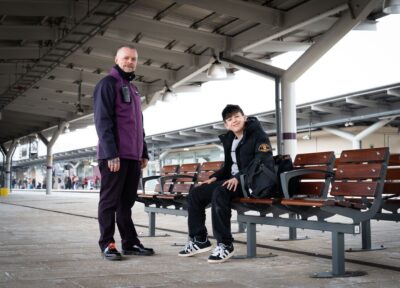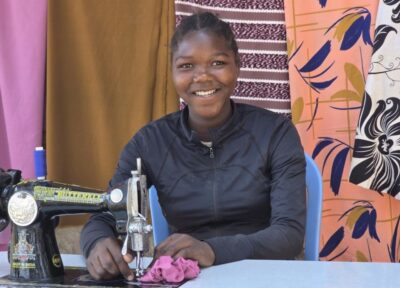The importance of self-expression
Our youth practitioner Amelia works with five young people who are LGBTQ+.
“Navigating adolescence is tricky anyways,” she says, “but on top of that, LGBTQ+ young people have to navigate those extra layers of identity and belonging.”
“It’s being talked about a lot more in the media, but there’s still that fear of rejection and the desire to be accepted in a space.”
Amelia says there’s a lot that buildings and spaces can do to make LGBTQ+ young people feel accepted.
“Something as simple as a place having a pride flag up, tells young people: ‘You are safe here.’”
Many of the young people Amelia helps find a sense of empowerment in being allowed to wear pride badges with their pronouns on their school uniform.
“That way they don’t have to come out every time, but people won’t misgender them,” she explains.
And when it comes to “coming out”, it’s often their peers they confide in first.
“I think young people these days are a lot more tolerant than adults are. So a lot of them will come out to their peers first, because their parents might think it’s a trend or not understand.”
“Regardless of being LGBTQ+ or not, all young people want a sense of identity and acceptance from their peers.”








